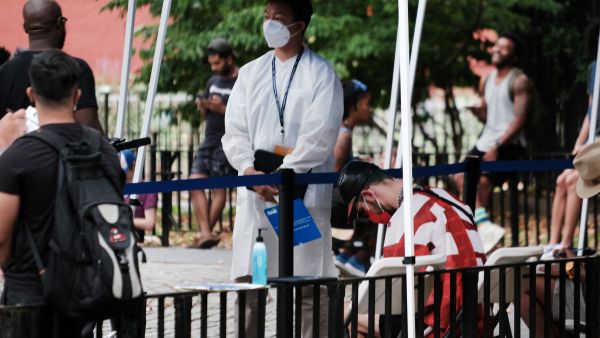ALBAWABA - The Department of Health (DOH) has identified one new case of MonkeyPox (mpox) in the Philippines, a 33-year-old male with no previous travel history outside the country.
In a news statement issued Monday, the DOH stated that the final case was discovered in December 2023. The statement detailed that the testing process for the public will be made as accessible as possible.
Health Secretary Teodoro Herbosa stated: "DOH will make the testing process as convenient as possible, so that suspect cases may be identified fast and allowed to stay at home,".
Herbosa asserted that the health system in the Philippines is braced and ready to handle the situation, while the public will remain informed on all the details across the process.
On August 18, the DOH received notification of the 10th laboratory-confirmed mpox case, which included a male who had close, personal contact three weeks before the beginning of symptoms.
The symptoms began more than a week ago with a fever, which was followed four days later by the discovery of a characteristic rash across the face, back, neck, torso, groin, palms, and soles, according to the DOH.
The case was evaluated in a government hospital, where specimens from the skin lesions were gathered and analyzed using real-time polymerase chain reaction (PCR). The test findings were positive for monkeypox virus DNA.
The DOH reported that typical symptoms of mpox include a skin rash or mucosal sores that can persist for 2 to 4 weeks.
The rashes are accompanied by fever, headaches, muscular pains, back discomfort, fatigue, and enlarged lymph nodes.
Mpox can be spread to humans by close, personal contact with an infectious person, contaminated objects such as worn clothing or utensils, or infected animals.
"We can prevent Mpox. Mpox is spread by close, personal contact, and the products used by those infected. "Keeping our hands clean with soap and water or alcohol-based sanitizers will help," Herbosa explained.









